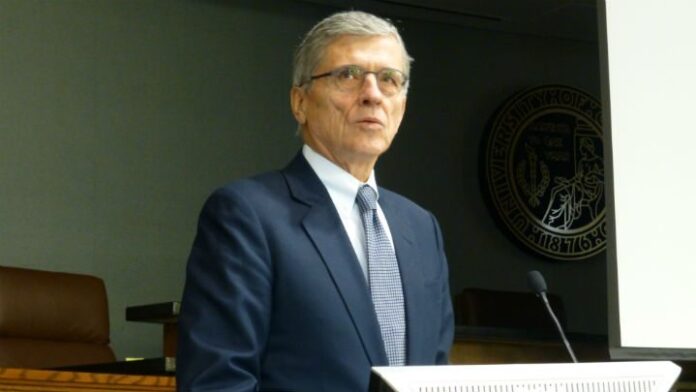FCC Chairman Wheeler said T-Mobile Binge On service ‘highly innovative and highly competitive’
The T-Mobile Binge On program appears to have received the cautious approval of Federal Communications Commission Chairman Tom Wheeler, who this week indicated the offer was “highly innovative and highly competitive.”
Speaking at the FCC’s Open Commission Meeting in Washington, D.C., Wheeler said at this point the agency does not have any issues with the carrier’s program. Some had questioned whether the program could violate net neutrality tenants of the FCC’s Open Internet Order.
“I think that it’s clear in the Open Internet Order that we said we are pro competition and pro innovation. Clearly this meets both of those criteria,” Wheeler said, adding the FCC is continuing to look into the service.
FCC Commissioner Ajit Pai earlier this year said he thought T-Mobile US’ similar Music Freedom program violated the Open Internet order.
“Generally speaking, free content seems to be a good thing for most wireless consumers but the agency explicitly said that could be considered a net neutrality violation under the Internet conduct standard,” said Pai at an event hosted by the Federalist Society.
The Binge On service, which was unveiled last week and is now available to all T-Mobile US customers, allows for customers on the carrier’s Simple Choice postpaid plans with data buckets of at least 3 gigabytes per month free and unlimited streaming of video content via their cellular connection from their subscriptions to Crackle, Encore, ESPN, Fox Sports, Fox Sports Go, HBO Now, HBO Go, Hulu, MLB, Movieplex, NBC Sports, Netflix, Sling TV, Sling Box, Showtime, Starz, T-Mobile TV, Univision Deportes, Ustream, Vessel, Vevo and Vudu, as well as the recently launched Go90 service from Verizon Wireless and AT&T’s DirecTV streaming service. That streamed content will not count against a customer’s data bucket and is included at no additional charge.
T-Mobile US management did not seem concerned about the issue when it unveiled the offer, noting the platform was open and free to all content providers as long as they met some technical requirements. Those requirements include a limitation on the quality of the stream to what T-Mobile US claims is “DVD quality” of at least 480p resolution. It was noted that Google’s YouTube platform does not currently adhere to the platform’s technical requirements.
Customers can control whether they want to limit their video quality to those requirements by controlling the Binge On platform, though they are only able to refrain from dipping into their data allotment if the Binge On platform is enabled on their device.
Customers on data plans of less than 3 GB, which are currently the data buckets provided at no additional charge on the carrier’s Simple Choice rate plans, will have data from those streaming services deducted from their data buckets. T-Mobile US claims the Binge On technology provides a three-times improvement in network capacity, noting consumers watching video content not part of the free package will be able to consume three times as much content for the same allotment of data.
Connected with his applause of the service, Wheeler also took a moment to take a dig at opponents to the FCC’s Open Internet Order who claimed the agency’s decision would impact innovation.
“I also kind of chuckle at the fact that as we were debating the Open Internet everyone was saying ‘oh this is going to thwart innovation, this is going to be terrible, people are going to have to come to the FCC to say mother may I before they do anything in the market,’ ” and well that certainly didn’t happen here,” Wheeler said.
Bored? Why not follow me on Twitter

